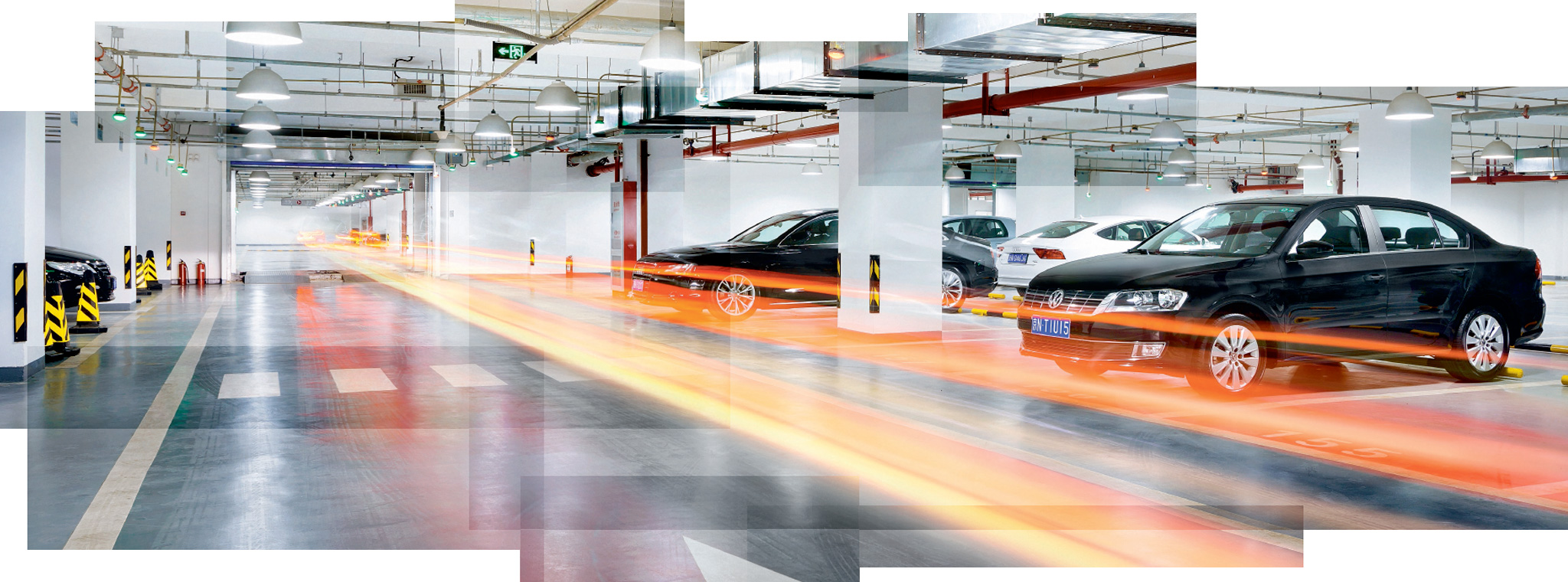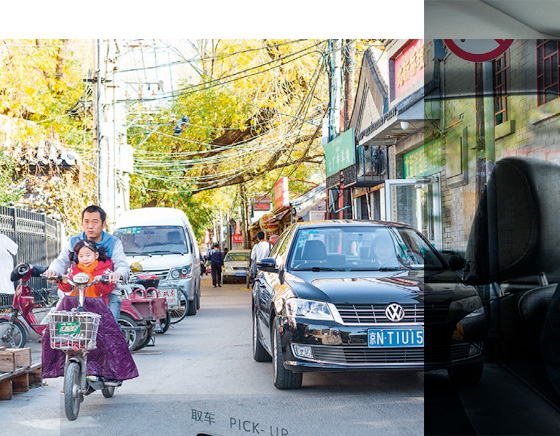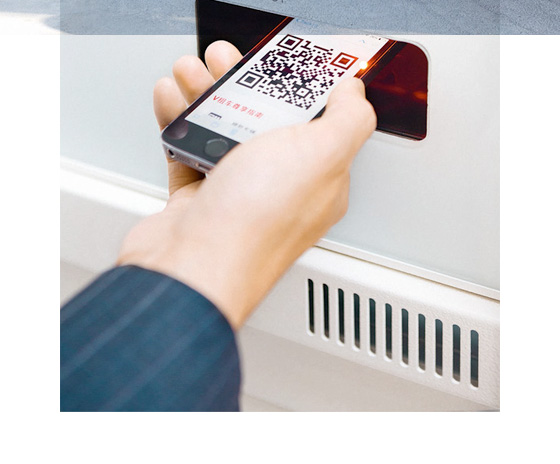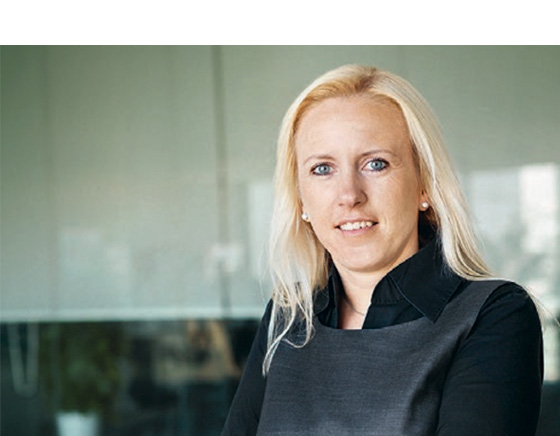A shared solution

Carsharing is still largely unknown in China, the biggest passenger car market in the world. However, it has the potential to meet the desire of many people in China for more flexible mobility. Volkswagen Financial Services is a pioneer with its early entry in this growth market.
Wang Haoping holds his smartphone against a self-service terminal in the underground parking garage of Beijing’s International Financial Center. The scanner reads the QR code on the display and a small metal box springs open silently. Inside is a key for a gleaming black Volkswagen Sagitar which is waiting ten meters away. Unseen for the customers, an assistant stands in the background. He checks each vehicle when it is returned and ensures that it is in perfect condition. The Volkswagen and Audi passenger cars in this underground parking garage change drivers frequently: they belong to “VRent”, the corporate carsharing project launched by Volkswagen New Mobility Services.
“The customer receives a QR code when they reserve the vehicle, or can register using a RFID sticker on their driver’s license. The user is automatically identified wirelessly when they pick up their vehicle”, explains Mareike Garz, the senior program manager responsible for VRent. The vehicles are collected from and returned to a parking garage. From here, they turn onto one of the arterial roads in Beijing’s central business district, past modern glass skyscrapers and across gigantic intersections. Garz looks down at the traffic from her office on the 29th floor. Her target group works in the surrounding high-rise office buildings – VRent is exclusively aimed at corporate customers. Parking is in short supply in Beijing, with over five million cars competing for around 2.5 million parking spaces. But every high-rise office building has its own parking garage.
New mobility is one of four business fields at Volkswagen Financial Services AG, which owns Volkswagen New Mobility Services. Its VRent project has broken new ground in carsharing in the key Chinese market. Public-sector interest in modern mobility concepts is growing. Car sales in China – almost 18 million vehicles in 2014 – are unmatched by any other country. But infrastructure in the cities, where more than half of China’s population already lives, cannot grow indefinitely. This is why carsharing has the potential to become part of a new, intelligent transport policy. With its early entry in the carsharing business, Volkswagen is again playing a pioneering role – as it did during the development of the Chinese automotive industry at the beginning of the 1980s.
“Our customers appreciate the great flexibility our carsharing vehicles offer. And, of course, a guaranteed parking space.”
Mareike Garz, Senior Program Manager responsible for VRent, Volkswagen Financial Services
VRent has won several pilot customers, including Deutsche Gesellschaft für Internationale Zusammenarbeit (GIZ). Its employees can reserve a car online or via a smartphone app. The models range from the Volkswagen Sagitar through the Passat1 down to the Audi A62. They are billed by the hour and the price includes gas, cleaning and maintenance. The aim is to make it as easy as possible for customers, making the VRent project truly groundbreaking. “Initially, many colleagues did not know exactly what carsharing is”, says Alexander Jung, project manager for e-mobility and climate protection, who is responsible for the project at GIZ. “But they were quickly won over by the new offering.” “The cars are very good and the system is very simple”, confirms his colleague Wang Haoping, who often uses VRent vehicles to drive to appointments. “We used to have to take a taxi. You are much more flexible if you drive yourself.” Wang sometimes also takes advantage of the cheaper weekend rate for trips with his family. In this way, employees can use the cars privately but pay themselves.
Garz and her colleagues have strong arguments for promoting the new offering: flexibility, cost savings and the quality of the vehicles. And, of course, a guaranteed parking space. The team now wants to offer VRent in three areas of Beijing with a particularly high concentration of high-rise office buildings, including a financial district in the west and the Zhongguancun IT hub in the northwest of the city. Studies on introducing the system in further cities are well under way. Despite all of the challenges that come with a pioneer project like this, Garz is convinced: VRent will play a flagship role in China.



GIZ employee Wang Haoping often used to go to meetings by taxi. Now he uses VRent.

Mareike Garz is on a mission: to make car sharing popular in China.

1 Volkswagen Passat fuel consumption in l/100 km combined from 1.6 to 5.4; CO2 emissions in g/km combined from 37 to 140 (including values from Volkswagen Passat GTE).
2 Audi A6 fuel consumption in l/100 km combined from 4.2 to 9.6; CO2 emissions in g/km combined from 109 to 224.
PHOTOGRAPHY
Andreas Mader